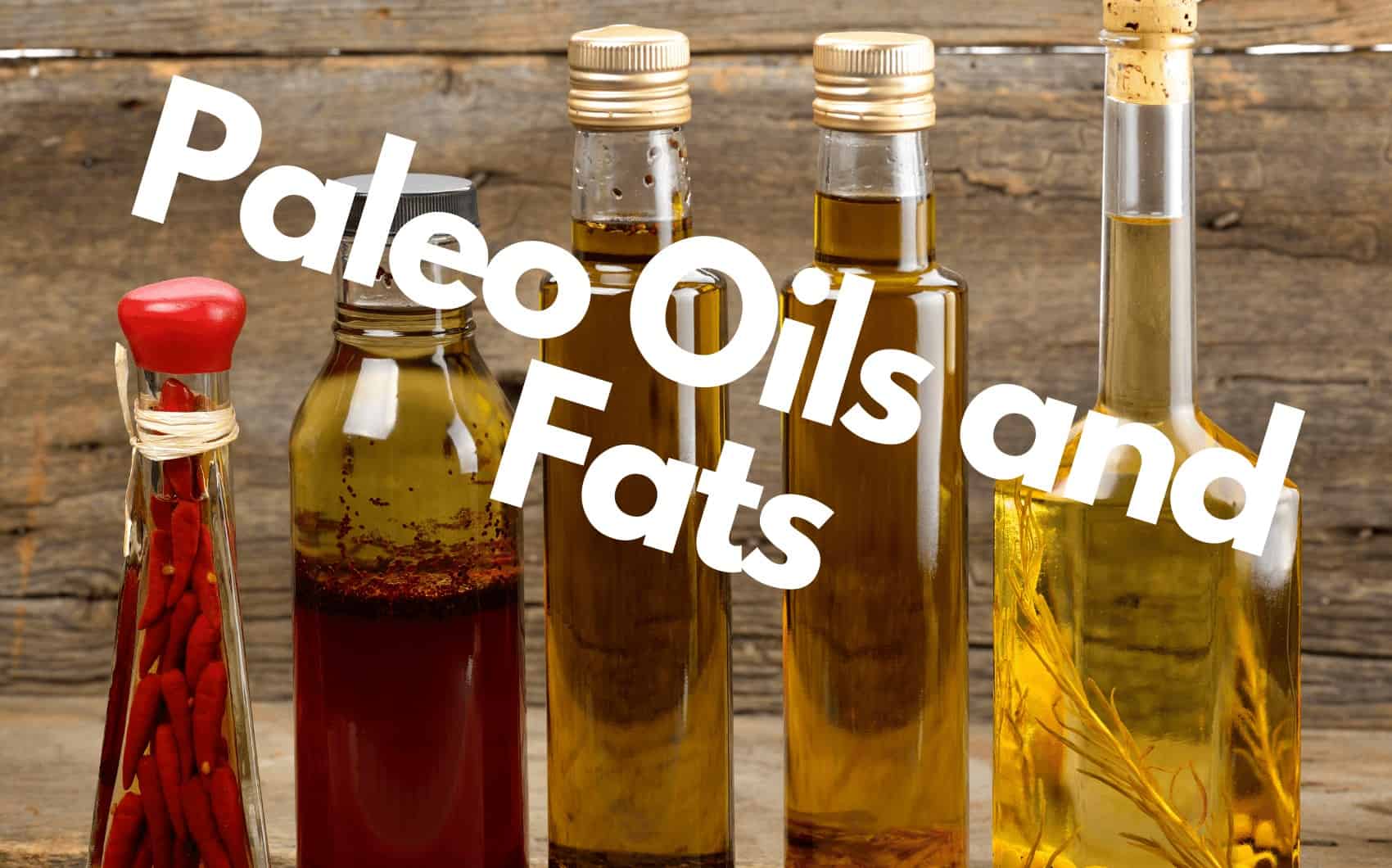
The best oils to use in Paleo cooking are unrefined oils and fats with primarily saturated and unsaturated fatty acid contents.
Even though these types of fats can come with some disadvantages, they also provide many health benefits such as helping you break down vitamins, supporting healthy cholesterol levels, and fueling your body.
It is also important to choose oils and fats with a high enough smoke point to not burn, their nutritional benefits, and be wasted.
Here are a few of the best oils for the Paleo diet.
1. Olive Oil
Olive oil is rich in phenolic compounds known to reduce oxidative stress on the body and preserve essential polyunsaturated fats.
Extra-virgin olive oil is extracted from the fruit and then pressed to yield an oil of high nutrients and flavorful characteristics.
Extra virgin olive oil is produced from the first pressing, making it richer with more flavor and nutrients.
However, oil has a low smoke point and isn’t suitable for cooking over high heat. It is best to use it in sauces or drizzles with salads for added flavor and nutrients.
Regular olive oil has a higher smoke point and can be used for medium-heat cooking like sautéing, unlike extra virgin olive oil.
2. Avocado Oil
Avocado oil is extracted from avocados, which also contain fatty acids and nutrients.
Avocado oil is a popular choice among Paleo dieters, as it contains healthy fats and great nutrients.
Avocado oil has an exceptionally high smoke point, so it’s perfect for searing and grilling lean meats and veggies. It also doesn’t mask the flavor of whatever you’re cooking – try drizzling a tsp on your salads to add some zest.
[grwebform url=”https://app.getresponse.com/view_webform_v2.js?u=yhX3C&webforms_id=27445103″ css=”on” center=”off” center_margin=”200″/]
3. Palm Oils
Palm oil is an unrefined, high-saturated fat oil extracted from the fruit of palms.
Palm oil is a flavorful and nutritious cooking oil that can be used in Paleo recipes. When making Paleo, there are two common types of palm oil- red palm oil, which has a warm flavor and a nice red tone, and palm fruit oil.
The high smoke point means that it is ideal for almost any type of cooking, including frying. Its flavor enhances a variety of dishes
4. Coconut Oil
Coconut oil is solid at room temperature, derived from the fruit of coconut palms, and has a high saturated fat content.
Coconut oil can be substituted for butter in Paleo cooking. Still, there are some recipes where you’ll need a different substitute.
Use coconut oil for frying eggs, sautéing vegetables, or incorporating into any Paleo-friendly low-heat baking.
5. Lard
Lard is derived from pig fat and can be extremely useful for cooking Paleo dishes. It’s low in saturated fats and does not contain trans-fatty acids.
Despite its origins, lard is a more “neutral” taste than butter and makes dishes delicious.
Its high smoke point makes it a good choice for cooking with oil. Its flavor also deepens as the meat cooks, making your Paleo meals satisfying and healthy.
Conclusion
Be sure and pick the right fat and oil for the job! If you fry with high heat use a high smoke point oil like avocado or use lard. All other low heat oils can be used for salads, dressings, and low heat cooking applications.
Don’t forget to check out our Beginners Guide To Paleo and other Paleo-related articles.
and other Paleo-related articles.
Recent Posts
How To Reverse Fatty Liver Disease Through Diet (7 Day Sample Diet)!
Is A Fatty Liver Reversible? Fatty Liver Diet Plan and Menu Here we tell you everything you need to know about the fatty liver diet, menu, recipes, tips, and tricks. Did you just get diagnosed...
How to lose weight for teenage girls. A complete guide with tips
Lose weight and surprise your friends with your transformation. Follow our exclusive weight loss tips, healthy diet, and workout routine for teenage girls-all backed by science and recommended by...


